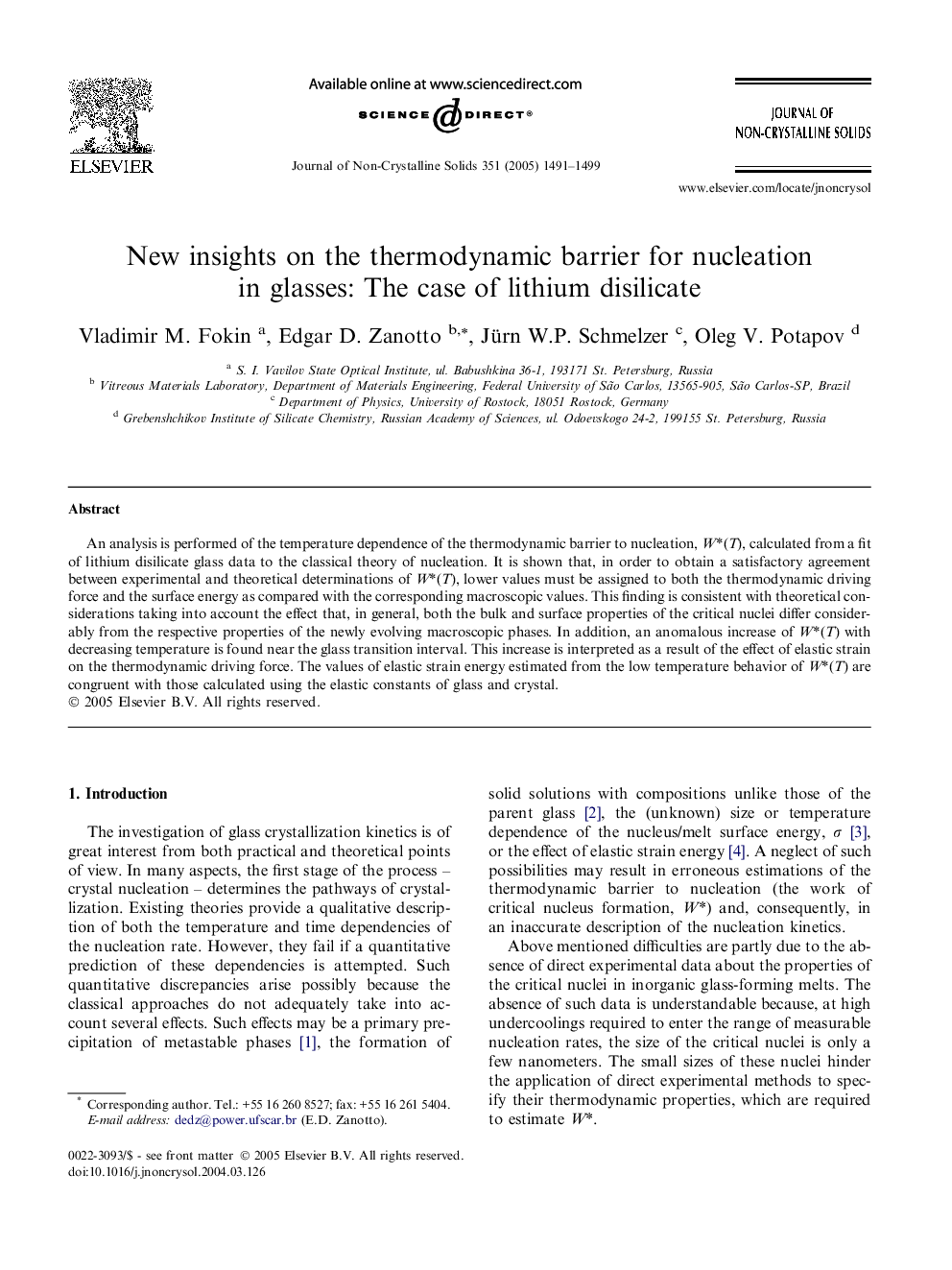| Article ID | Journal | Published Year | Pages | File Type |
|---|---|---|---|---|
| 10631268 | Journal of Non-Crystalline Solids | 2005 | 9 Pages |
Abstract
An analysis is performed of the temperature dependence of the thermodynamic barrier to nucleation, W*(T), calculated from a fit of lithium disilicate glass data to the classical theory of nucleation. It is shown that, in order to obtain a satisfactory agreement between experimental and theoretical determinations of W*(T), lower values must be assigned to both the thermodynamic driving force and the surface energy as compared with the corresponding macroscopic values. This finding is consistent with theoretical considerations taking into account the effect that, in general, both the bulk and surface properties of the critical nuclei differ considerably from the respective properties of the newly evolving macroscopic phases. In addition, an anomalous increase of W*(T) with decreasing temperature is found near the glass transition interval. This increase is interpreted as a result of the effect of elastic strain on the thermodynamic driving force. The values of elastic strain energy estimated from the low temperature behavior of W*(T) are congruent with those calculated using the elastic constants of glass and crystal.
Related Topics
Physical Sciences and Engineering
Materials Science
Ceramics and Composites
Authors
Vladimir M. Fokin, Edgar D. Zanotto, Jürn W.P. Schmelzer, Oleg V. Potapov,
